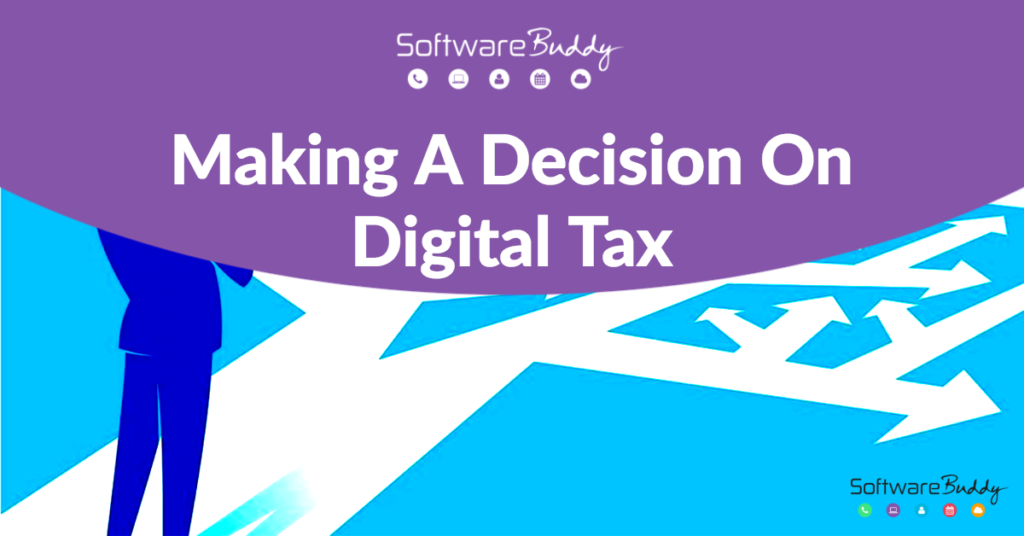Introduction to Making Tax Digital
There is no getting away from making tax digital.
You have hopefully started to see that digital transformation (albeit as a result of enforced digital tax) can lead to a leaner, more efficient, more productive and more profitable business.
Over and above all that, there is a more pragmatic benefit too – the cost of investing in a digital transformation plan to identify digital systems such as up to date accounting software is less expensive than not.
The Costs of Non-Compliance
With the new ‘Making Tax Digital’ comes a new form of compliance.
And, while you might feel you were doing just fine with how things were, these new rules and penalties could have some serious financial implications.
So much so that it’s actually far less expensive (and stressful) to make a one-time investment in a digital transformation audit to evaluate and systemise your tax affairs.
Back in 2017, HMRC considered a range of models for how penalties would be levied against late MTD submissions.
The model they went for – and the one that you now need to know about – is a points-based system.
HMRC said this model got the best feedback for its simplicity.
While nothing in tax is every really truly simple, the penalty model coming into force with MTD is at least quite straightforward.
Under the new rules, your business (or yourself if you’re a landlord) will incur points every time you are late filing a return. There are three separate MTD reports for each type of tax, so you can earn penalty points across all three.
If you have more than one company, you could incur multiple point penalties across any of those businesses.
For many businesses, this adds up as more work, more often and the prospect of a constantly growing tally of penalty points. In this case, points don’t mean prizes, they mean fines.
Once the points threshold is reached, expect a brown envelope on your doormat with a fine to be paid.
Being compliant and on time with future returns can erase your accumulated points
HMRC is still being fairly vague about the specifics of the penalty amounts but this just means that it’s more important than ever to know what digital tax is, be prepared to make your tax processes digital and ensure you’re compliant or face financial penalties.
Go Professional
According to tax.org,“While 99% of VAT returns are filed online, only around 13% of VAT returns are currently filed directly from software. For the remaining 87%, the VAT return figures are typically entered manually into the HMRC government gateway page and submitted to HMRC that way i.e. requiring manual input/intervention.”
As the above shows, HMRC is not showing much mercy when it comes to MTD.
If you are in the 87% that currently enters your return figures manually into the gateway, you’re most at risk of failing to comply when Making Tax Digital comes into force.
There doesn’t seem to be any plan for any slack in the system. Especially as businesses acclimatise, so it is crucial that you hire a professional to audit your tax affairs.
A professional accountant or digital transformation consultant like a Software Buddy pro will be fully on top of the new MTD regulations and rules.
How Software Buddy can help:
We can look at the systems you have in place and determine whether or not they are suitalble. Then , we can guide you through the decision-making process.
A Software Buddy pro can also help you systemise your digital tax affairs, helping you to unlock further benefits. Including greater financial controls, more accurate accounting systems and easier reporting.

Tax compliance is always going to be a bit of a thorny issue, no matter how hard you try and make sure the i’s are dotted and the t’s crossed. And MTD can make this seem even more difficult with a deadline and potential financial penalties.
The cost of a professional in the short-term far outweighs the impacts in the long-term.
So, if you’re worried about Making Tax Digital and the penalties surrounding non-compliance, get in touch with Software Buddy today.
We offer an in-depth digital transformation and digital tax auditing, evaluations, roadmaps and decision-making support. Enabling you to find the best solution to your digital tax requirements.

